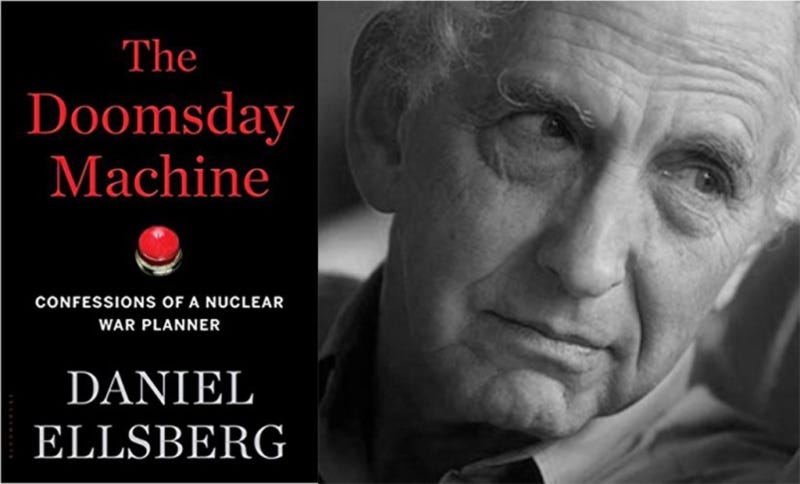Daniel Ellsberg's Fear Of Nuclear Armageddon More Relevant Than Ever
Washington’s recklessness has masqueraded as fortitude and its disregard for the dangers of nuclear war as a commitment to democracy.
“Madness in individuals is something rare. But in groups, parties, nations, and epochs, it is the rule.”
— Friedrich Nietzsche
By Norman Soloman
TomDispatch (12/14/23)
Top American officials in the “national security” establishment are notably good at smooth rhetoric and convenient silences. Their scant regard for truth or human life has changed remarkably little since 1971 when Daniel Ellsberg risked decades in prison to leak the Pentagon Papers to the world. During the years between then and his death six months ago, he was a tireless writer, speaker, and activist.
Most people remember him, of course, as the whistleblower who exposed voluminous official lies about the Vietnam War by providing 7,000 top-secret pages of classified documents to the New York Times and other newspapers. But throughout his adult life, he was transfixed above all by the imperative of preventing nuclear war.
Let’s say you’re standing in a pool of gasoline with your adversary and you’re both lighting matches. Stop lighting those matches and you’ll be denounced as a unilateral disarmer, no matter that it would be a step toward sanity.
One day in 1995, I called Dan and suggested he run for president. His reply was instant: “I’d rather be in prison.” He explained that, unlike typical candidates, he couldn’t stand to offer opinions on subjects he really knew little or nothing about.
Incessant deception
However, for more than five decades, Ellsberg didn’t hesitate to publicly address what he really did know all too much about — the patterns of government secrecy and lies that sustained America’s wars in one country after another, along with the chronic deceptions and delusions at the core of the nuclear arms race. He had personally seen such patterns of deceit at work in the upper reaches of the warfare state. As he told me, “That there is deception — that the public is evidently misled by it early in the game… in a way that encourages them to accept a war and support a war — is the reality.”
And how difficult was it to deceive the public? “I would say, as a former insider, one becomes aware: it’s not difficult to deceive them. First of all, you’re often telling them what they would like to believe — that we’re better than other people, we are superior in our morality and our perceptions of the world.”
Dan had absorbed a vast array of classified information during his years working near the top of the U.S. war machine. He knew countless key facts about foreign policy and war-making that had been hidden from the public. Most importantly, he understood how mendacity could lead to massive human catastrophes and how routinely the key figures in the Pentagon, the State Department, and the Oval Office openly lied.
His release of the Pentagon Papers in 1971 — revealing crucial history about the Vietnam War while it was still underway — exposed how incessant deception got wars started and kept them going. He had seen up close just how easy it was for officials like Secretary of Defense Robert McNamara to suppress doubts about American war-making and push ahead with policies that would, in the end, lead to the deaths of several million people in Vietnam, Laos, and Cambodia. And Dan was haunted by the possibility that someday such deception might lead to a nuclear holocaust that could extinguish almost all human life on this planet.
In his 2017 book The Doomsday Machine: Confessions of a Nuclear War Planner, he highlighted this all-too-apt epigraph from philosopher Friedrich Nietzsche: “Madness in individuals is something rare. But in groups, parties, nations, and epochs, it is the rule.” The ultimate madness of policies preparing for thermonuclear war preoccupied Dan throughout his adult life. As he wrote…






